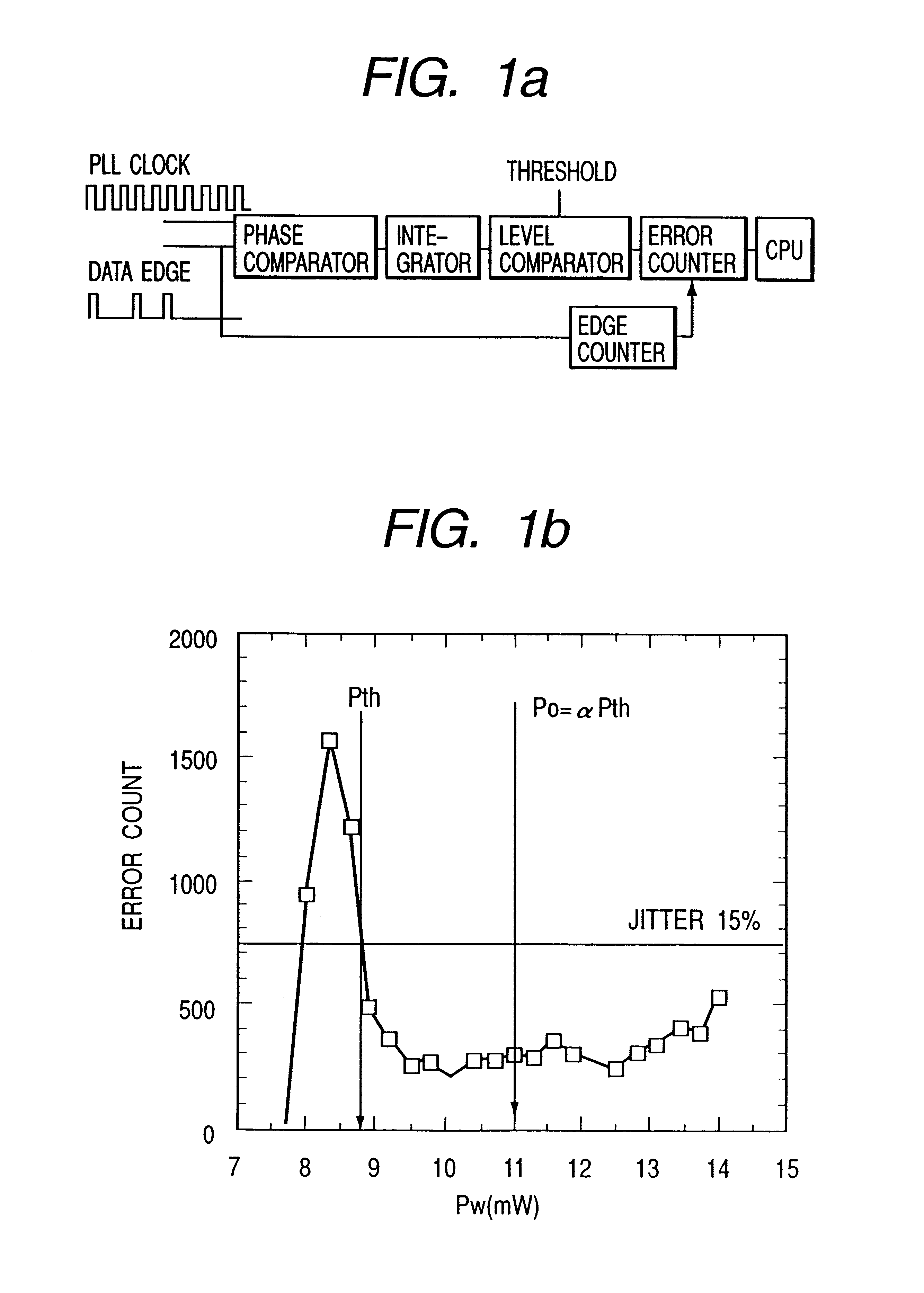Arrangements for using detected phase differences for setting laser power levels
- Summary
- Abstract
- Description
- Claims
- Application Information
AI Technical Summary
Benefits of technology
Problems solved by technology
Method used
Image
Examples
example 2
Information Recording-Reproducing Apparatus
FIG. 14 presents an example of an information recording-reproducing apparatus using the trial writing method and phase difference detection method in the preferred embodiment mentioned in Example 1. Referring to FIG. 14, an optical disc medium 8 is rotated by a motor 162. To provide an intensity level of light instructed by central control means 151, light intensity control means 171 controls light generating means 131 so as to suitably emit a light beam 122. Through focusing means 132, the light beam 122 is focused to form a light spot 7 on the optical disc medium 8. A light beam 123 reflected from the light spot 7 is detected by light detecting means 133. The light detecting means comprises a plurality of divided photodetector elements. Using a reproduced signal 130 from the light detecting means, reproducing means 191 reproduces information recorded on the optical disc medium. The reproducing means 191 contains detecting means for trial ...
PUM
 Login to View More
Login to View More Abstract
Description
Claims
Application Information
 Login to View More
Login to View More - R&D
- Intellectual Property
- Life Sciences
- Materials
- Tech Scout
- Unparalleled Data Quality
- Higher Quality Content
- 60% Fewer Hallucinations
Browse by: Latest US Patents, China's latest patents, Technical Efficacy Thesaurus, Application Domain, Technology Topic, Popular Technical Reports.
© 2025 PatSnap. All rights reserved.Legal|Privacy policy|Modern Slavery Act Transparency Statement|Sitemap|About US| Contact US: help@patsnap.com



